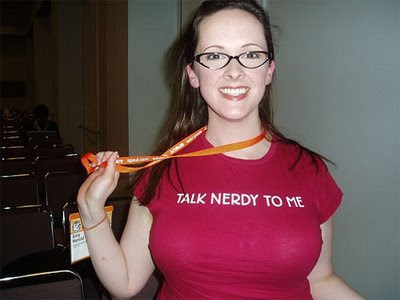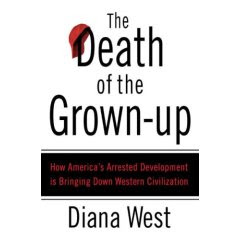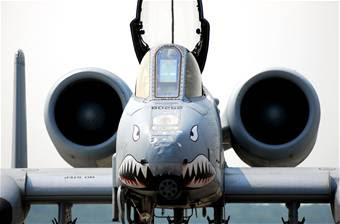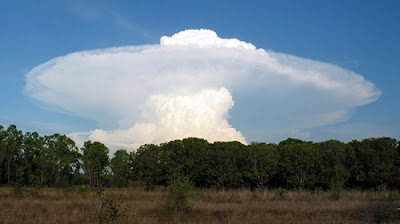Sunday, September 30, 2007
Political Interests Tracked

By Mark Schliebs
September 28, 2007 07:55am
http://www.news.com.au/
Religious Apartheid Tyranny

A new movie called "The Kingdom" shows Saudis fighting terrorism alongside FBI agents. That's certainly what we'd like to see. But like the flick, it's pure fiction.
Saturday, September 29, 2007
Learning from the past
Illustration by Peter Connolly
www.legionxxiv.org/corbridgbenlrg/

“A nation can survive its fools, and even the ambitious. But it cannot survive treason from within. An enemy at the gates is less formidable, for he is known and carries his banner openly. But the traitor moves amongst those within the gate freely, his sly whispers rustling through all the alleys, heard in the very halls of government itself.
Friday, September 28, 2007
National Security
Article from: AAP
September 28, 2007 10:25am
Afghan Police Outpost
September 27, 2007
Thursday, September 27, 2007
Tough Questions
"Read these two books by Karen Armstrong, and call me in the morning!" The coinage of the term "Islamophobia" is an exercise in blaming the victim. If Muslims want to end "Islamophobia" instantaneously, here's how: 1. Focus your indignation on Muslims committing violent acts in the name of Islam, not on non-Muslims reporting...
Wednesday, September 26, 2007
> & < Jihad

Yes, yes, he knows all about the "greater jihad" and the "lesser jihad" -- read the whole interview, "One on One with Steven Emerson: 'Jihad is jihad," by Ruthie Blum in the Jerusalem Post
Full article: <http://www.jihadwatch.org/archives/018232.php>
Tuesday, September 25, 2007
Counterjihad Websites - Australia
The month of November in the Counterjihad Calendar is represented by Australia.Australia has shown stalwart resistance to Islamization. Yes, it has its dhimmis, its PC brigades ready to crack down on “racism” at the drop of a burnoose, but its national character seems to have pushed all the Multicultural nonsense to the sidelines.
Many thanks to Darrin Hodges, who sent me most of the links, and for all the other Aussies who contributed.
Australian SAS Elite

Mark Dodd September 22, 2007

It was not until 1964 that the Australian SAS, sometimes referred to as the SASR, evolved into a fully fledged regiment and the famed sandy beret with winged dagger was introduced.
Since its inception, 4250 sandy berets have been awarded.
Australia/NATO Pact

David Nason, New York correspondent September 22, 2007
The treaty is due to be signed in New York next week by Foreign Minister Alexander Downer and NATO Secretary-General Jaap de Hoop Scheffer.
Monday, September 24, 2007
Civilized Act

by Marko Kloos
Sunday, September 23, 2007
Death of Civilization

The Death of the Grown-Up
By Jamie Glazov
FrontPageMagazine.com
Thursday, August 30, 2007
Frontpage Interview’s guest today is Diana West, a regular contributor to CNN's "Lou Dobbs Tonight" and "Lou Dobbs This Week." Her weekly column, which appears in numerous papers including the Washington Times every Friday, often examines the war and Islam through a cultural lens. She is the author of the new book, The Death of the Grown-up: How America's Arrested Development Is Bringing Down Western Civilization.
West: Thank you, Jamie, for the opportunity.
Saturday, September 22, 2007
Please, Let's Roll.

H/T To All: http://crusader-rabbit.blogspot.com/
Ted & Common Sense
So while you watch our country crumble and sip from the toxic tea of the Leftstream media each evening, do you find yourself pretty much perpetually nauseated? Throw their garbage from your mind. The cure is to stand up and speak out. Do not be silenced. You are not alone. Take inventory of those patriots who have not been swayed and can still clearly recall what and why America IS! Surround yourself with intellect and definition. Purge your mind of the filth the left continuously purveys. Absorb some good, old fashioned common sense... and then pass it on.
H/T: http://defiant-infidel.blogspot.com/
Friday, September 21, 2007
I said No No No
Effing brilliant....
h/t: http://theospark.blogspot.com
Footbaths for All
The Indianapolis airport has joined several other airports and universities in installing footbaths, at taxpayer expense, for Muslims to use in preparation for their prayers. Robert Spencer brings us the story.
Don’t forget to read Robert’s excellent Blogging the Qur’an series, with new posts arriving each Sunday morning.
Jihad Watch
Thursday, September 20, 2007
Dream Crusade
 More Muslims Being Led To Christ Through Dreams
More Muslims Being Led To Christ Through DreamsAugust 24th, 2007 in Christian Persecution, Islam, Christian Church Issues, Freedom of Religion, Ethiopia
by Inspire Staff/TN : Aug 19, 2007 : Inspire Magazine (Ethiopia)http://www.inspiremagazine.org.uk
“People always seek the money and the wealth of the earth, but what I seek is from God.”Inspire Magazine has reported on a former Islamic leader in Ethiopia describing how he found faith in Christ after Jesus appeared to him in a dream.
Notes the report: “‘Robel’ was expelled from the mosque he helped to lead in 2003 for asking questions about Jesus. That same night he had a dream in which Christ appeared to him. Continue reading ‘More Muslims Being Led To Christ Through Dreams’
From: http://catchthefire.com.au/blog/
Diggers - Brutal Engagements
By Mark Dodd
September 19, 2007

Suicide bombings have soared and about 4000 people have been killed over the past 12 months, a quarter of them civilians.
US Defence Secretary Robert Gates warned yesterday that Afghanistan was a "litmus test" for NATO and would be "a mark of shame on all of us" if the alliance faltered in laying the foundations for democracy there.
The fact that there have been no Australian fatalities owes as much to good luck as the intensive training special forces undergo.
In several injury cases, a "few millimetres" difference would have resulted in certain death, Major General Hindmarsh said, referring to recent close fighting.
"One thing we can't be accused of is being obsessed with force protection - in other words, staying in base camp and venturing out every now and again," he said. "We like to patrol, and patrol in depth, which means well out, and we like to do it for lengthy periods of time.
"Our special forces modus operandi in Afghanistan is to get out there - get among the enemy and spend a long time in their (the Taliban's) safe areas, becoming as familiar with that environment as the enemy."
That involved gruelling patrols lasting a week or more into rugged mountainous terrain where the temperature ranged from 50C in summer to minus 15C in winter.
The environment was hard on vehicles and harder on the soldiers, requiring extreme levels of fitness and mental toughness, Major General Hindmarsh said. Every aspect of a patrol was meticulously planned.
The secret war pitting Australian special forces against the Taliban was classic counter-insurgency involving small, long-range patrols pushing deep into enemy territory, he said.
The effect had been "unsettling" for the Taliban and had helped thwart attacks on the city of Kandahar and the town of Tarin Kowt, where the Australian reconstruction taskforce is based.
Major General Hindmarsh was unapologetic about the level of secrecy surrounding SAS operations in Afghanistan. The Taliban were technically savvy, had access to the internet and closely monitored any news involving the movement of Australian special forces, he said.
The elite Perth-based Special Air Service Regiment marks its 50th anniversary this week.
http://www.news.com.au/story/0,23599,22442265-2,00.html
The Blob Returns

September 18, 2007
AFP
Wednesday, September 19, 2007
Education Jihad

Muslims attack $1m Saudi gift to uni
Richard Kerbaj September 17, 2007
Muslim leaders and academics have attacked Queensland's Griffith University for accepting an initial $100,000 grant from the Saudi embassy, which they accused of having given cash in the past to educational institutions to improve the perception of Wahhabism - a hardline interpretation of Islam.
The Australian understands the Griffith Islamic Research Unit will in coming years receive up to $1 million from Saudi Arabia, which has injected more than $120 million into Australia's Islamic community since the 1970s for mosques, schools, scholarships and clerical salaries.
A former member of John Howard's Muslim reference board, Mustapha Kara-Ali, accused the Saudis of using their financial power to transform the landscape of Australia's Islamic community and silence criticism of Wahhabism. "They want to silence criticism of the Wahhabi establishment and its link to global terrorism and national security issues," he said.
Read the rest:
http://www.theaustralian.news.com.au/
Related Links
Send us your syllabi. It will provide observers insight into what they're calling education in Islamic Studies these days, and give us a chance to recommend readings that many others might find useful as well.
http://www.jihadwatch.org/
Some of our universities employ Muslims to do da'awa instead of ME studies.
We have Asshats like this one here-
http://sheikyermami.com/2007/09/04/aussie-diversity-director-calls-for-muslim-prayer-rooms-in-all-universities/
and this one here:
Gary Bouma, a professor of sociology at Monash University, told a Muslim students’ conference that the secularist stance of universities was no longer appropriate at a time when religion played a more important role in public life. He said secularism was not a neutral stance but was itself an ideology that was inimical to religions.
These creeps even look like they hatched from the same egg.
What's needed is a comprehensive report from every University in the country. We have a right to know who aids and abets the global jihad and who employs Muhammedan agit props to spread Islam instead of free enquiry.
CampusWatch, a link is provided at JW home page, has a list of colleges and universities that offer middle east and islamic studies.
here:http://www.campus-watch.org/recommends.php
A Gem of a Story
Tuesday, September 18, 2007
New Britain
Related:
Hardline takeover of British mosques
Andrew Norfolk


































